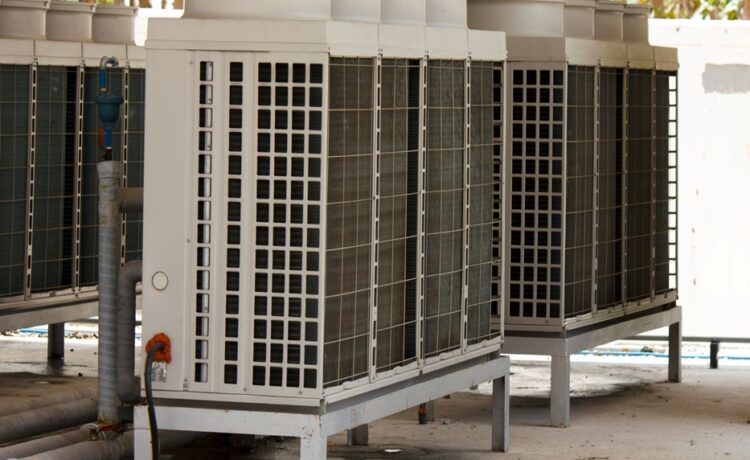It’s been raining for days. You’re at work, and it’s getting hot – but not because the sun is shining. The temperature in your office has just risen to an uncomfortable level, and you can’t figure out why! Turns out, there is a connection between rain and air conditioning units. Read on to find out more about how rain impacts your AC unit!
What Is an Air Conditioning Unit?
The purpose of an air conditioning unit is to cool down the air. An air conditioner uses a refrigeration cycle, which works similarly to a refrigerator or ice cream maker. Heating and cooling coils are used for removing heat from the inside of a room. The hot heat exchanger coil is located inside a closed compartment and cooled by cold outside air which is drawn in by an exhaust fan. The cooled air from the outside then circulates through the room via a supply hose to cool down it.
How Does Rain Impact Your Air Conditioning Unit?
Rain can have many different impacts on an air conditioning system, depending on the characteristics and structure of the device itself. Any type of water that comes into contact with the unit could have adverse effects. It can be water from rain, or condensation, which is formed when air flows over cold coils on an air conditioner.
Especially if the air conditioners are located outside of the building and not undercover, they are prone to allow rainwater in. Condensation is a problem as it contains salt from the air, which can accumulate and cause corrosion. If too much water collects in the unit, or nearby, some of it may run into the machine.
This could lead to short circuits and damage to electrical components and insulation. The condensation could also saturate exposed wires that are connected to the unit outside. When this happens, current travels through the water and causes short circuits. It is a good idea to make sure that electrical wires are covered when it rains by means of a simple covering with plastic or rubber.
Is it ok to have ac on during thunderstorm?
You can have your ac on during thunderstorms provided that you unplug the unit or switch it off before there is any lightning present. If a storm comes directly towards you, then it is best to shut the windows and turn off the ac so that it isn’t damaged.
What are your tips for keeping your air conditioning in working order?
When it rains, you should always unplug the unit and clean any water from its coils. It is a good idea to use a soft brush to clean off dust or mud. If there are a lot of leaves on the ground, you can use your vacuum cleaner for cleaning them. The other option for washing the unit is to use a garden hose. Also, you can go inside your home and turn on your air conditioning before you step out for some time, so it collects moisture from the air. Get professional help for ac repair in Roswell from heating repair services windsor co if your air conditioner stopped working after rainstorm.
Your air conditioning unit is an important part of your summer and it’s not just the heat that can quickly wear you down. You need to be prepared for rainy days, too! However, a common question most homeowners ask is: “Should I cover my air conditioner after summer?” We hope this article has helped clear up some misconceptions about how rain impacts on AC units.


















